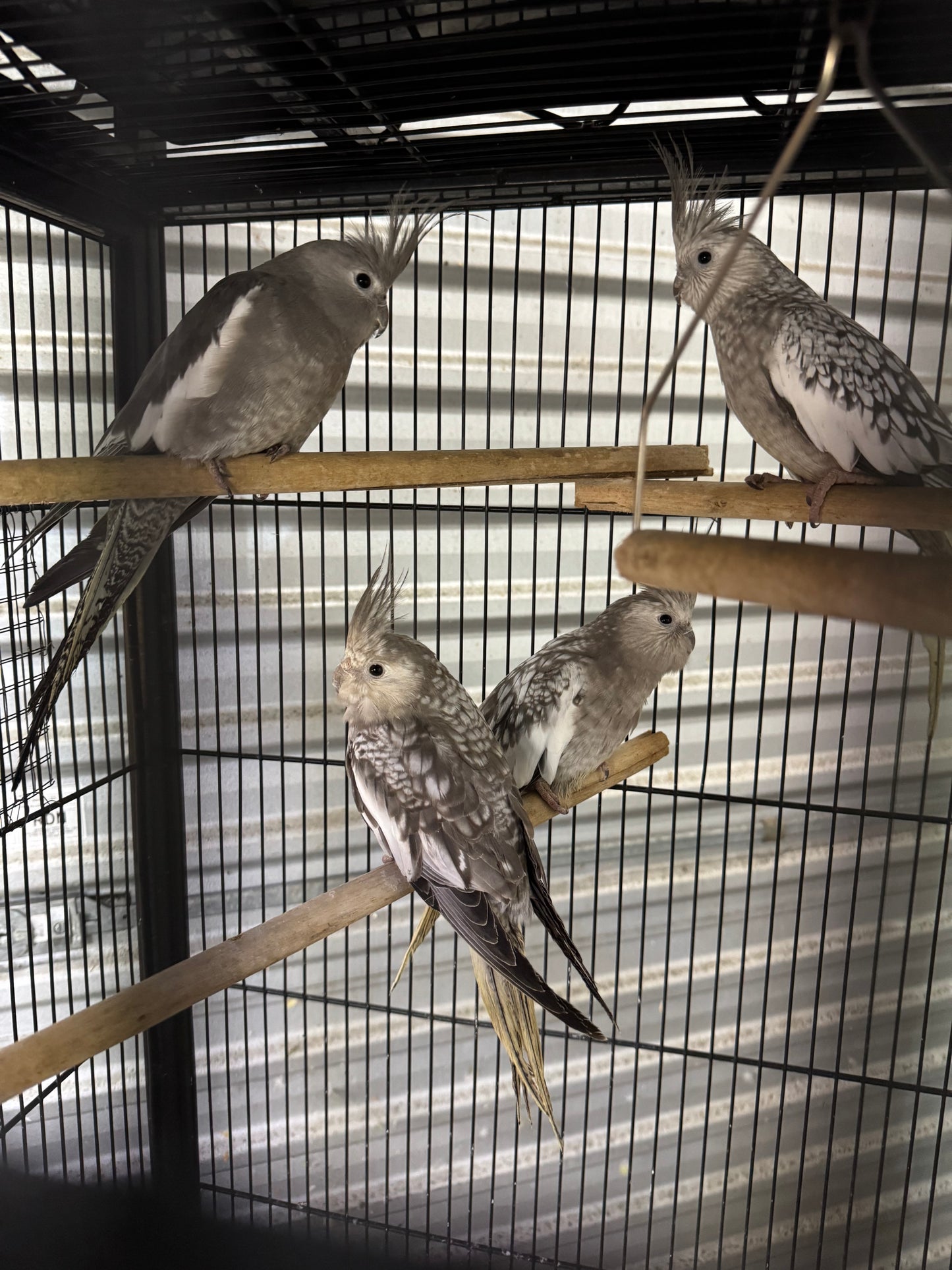Paws & Claws
Cockatiels
Cockatiels
Couldn't load pickup availability
Cockatiel Care & Information Sheet
Cockatiels (Nymphicus hollandicus) are charming, affectionate, and intelligent parrots that make excellent pets. Native to Australia, they are known for their distinctive crest, expressive faces, and melodic whistles.
📏 Basic Info
-
Lifespan: 15–25 years with proper care
-
Size: ~12–14 inches (including tail)
-
Weight: ~70–120 grams
-
Origin: Australia
- Colouration: Varys in store
🏡 Housing
-
Cage Size: Minimum 20”L x 20”W x 24”H for one bird, larger is better
-
Bar Spacing: ½” to ⅝”
-
Perches: Provide a variety of sizes and textures (natural wood perches recommended)
-
Toys: Rotate regularly; include chew toys, foraging toys, and mirrors (sparingly)
-
Placement: Keep the cage in a quiet but social area, away from drafts, fumes, and direct sunlight
🥗 Diet
A balanced diet includes:
-
Pellets: ~60–70% of diet
-
Seeds: ~10–20% (as a treat, not the main food source)
-
Fresh Veggies: Dark leafy greens, carrots, broccoli, bell peppers, etc.
-
Fruits: Apple, banana, mango (in moderation)
-
Avoid: Avocado, chocolate, caffeine, alcohol, salty/fatty foods
🧼 Always provide fresh, clean water daily.
💬 Social Needs
-
Cockatiels are highly social and bond closely with their humans.
-
They enjoy being handled and can be taught tricks and to whistle tunes.
-
Daily interaction outside the cage is crucial—aim for at least 1–2 hours per day of out-of-cage time and interaction.
🧠 Enrichment
-
Cockatiels are intelligent and curious—keep them mentally stimulated!
-
Provide puzzle toys, safe chew items, and opportunities to explore.
-
Encourage natural behaviors like foraging and climbing.
🧹 Cleaning & Maintenance
-
Clean food/water dishes daily
-
Spot clean cage daily
-
Full cage cleaning weekly
-
Rotate perches and toys to maintain hygiene and interest
🧑⚕️ Health & Grooming
-
Vet Visits: Annual avian vet checkups recommended
-
Beak, nails, feathers: Monitor for overgrowth or damage
-
Molting: Happens 1–2 times a year; ensure good nutrition
-
Bathing: Offer misting or shallow dish baths 2–3 times per week
🔍 Signs of Illness (seek vet care if you notice):
-
Fluffed-up feathers
-
Lethargy
-
Not eating/drinking
-
Discolored droppings
-
Changes in vocalization or behavior
🐣 Fun Facts
-
Cockatiels can mimic sounds and learn to whistle songs!
-
Their crest shows their mood (up = alert, flattened = angry/frightened).
-
Males are typically more vocal and prone to mimicry.
Share


